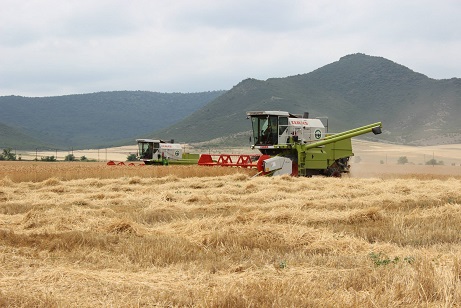Economy Ministry halts privatisation of agricultural lands

Georgia’s Minister of Economy and Sustainable Development disagrees with s Court decision to remove the temporary suspension of selling agriculture land to foreigners but will respect the Court outcome.
He says privatisation of agricultural land by the Ministry did not coincide with the Constitutional Court decision and said he was "categorically dissatisfied” with it, but he respected the institution and its authority.
The Court decision requested withdrawal of the provision to suspend sale of agricultural land to foreign nationals, after a year and two months of a Government-imposed temporary moratorium.
The Court said the regulations were against Georgia’s Constitution according to which property and inheritance rights are recognised and guaranteed. It also ruled it was inadmissible to cancel the universal ownership right of people obtaining, selling or even inheriting property.
"After the moratorium we created legal basis to ensure that property rights are not restricted for qualified, corporate investors, as well as for the banking system. Therefore, the problem of the moratorium was no longer on the agenda,” Kvirikashvili said.
"As for the renewal of privatisation by the Economic Ministry – yesterday I ordered to stop [selling] new privatisation lots of agricultural lands. According to best European and world practice, we will find new mechanisms in order to create control mechanisms,” he noted.
"The moratorium was caused by the fact that we were facing serious social problems and the event might have developed in an unpredictable scenario,” he added.
Kvirikashvili believed agricultural land should be privatised but the issue needed to be controlled with certain regulations and restrictions.
Georgia’s Catholicos-Patriarch responded to the Court decision and noted that removal of the moratorium "will put the state under a big stroke”. In a special statement, the Patriarch called on the Georgian Government to develop appropriate regulations.
"We welcome the entry of foreign capital and modern technology, because without it, the country’s development is impossible but this process should not become unmanageable. It should not lead us to losing our greatest material wealth – our land – and to transform our citizens into service personnel only,” the statement read.
The Patriarch noted that Georgian people, who primarily owned the goods of this country, would not get into a situation where they no longer had the opportunity to use inner entrepreneurial resources.
 Tweet
Tweet  Share
Share